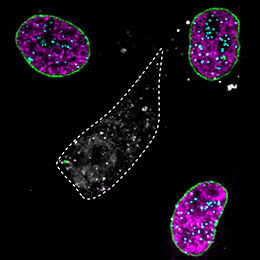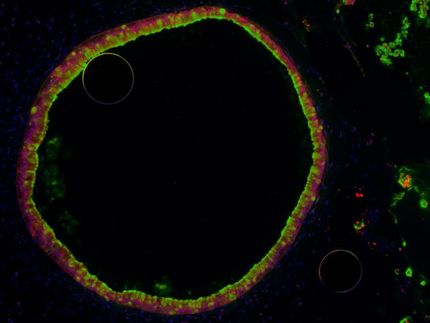Using microbes for the quick clean up of dirty oil
Microbiologists from the University of Essex, UK have used microbes to break down and remove toxic compounds from crude oil and tar sands. These acidic compounds persist in the environment, taking up to 10 years to break down. Mr Richard Johnson, presenting his PhD research to the Society for General Microbiology's meeting at Heriot-Watt University, Edinburgh, described how, by using mixed consortia of bacteria, they have achieved complete degradation of specific compounds in only a few days.
Tar sand deposits contain the world's largest supply of oil. With dwindling supplies of high quality light crude oil, oil producers are looking towards alternative oil supplies such as heavy crude oils and super heavy crudes like tar sands. However, the process of oil extraction and subsequent refining produces high concentrations of toxic by-products. The most toxic of these are a mixture of compounds known as naphthenic acids that are resistant to breakdown and persist as pollutants in the water used to extract the oils and tar. This water is contained in large settling or tailing ponds. The number and size of these settling ponds containing lethal amounts of naphthenic acids are growing daily - it is estimated that there is around one billion m3 of contaminated water in Athabasca, Canada, alone - and is still increasing. The safe exploitation of tar sand deposits depends on finding methods to clean up these pollutants.
"The chemical structures of the naphthenic acids we tested varied," said Mr Johnson, "Some had more side branches in their structure than others. The microbes could completely break down the varieties with few branches very quickly; however, other more complex naphthenic acids did not break down completely, with the breakdown products still present. We are now piecing together the degradation pathways involved which will allow us to develop more effective bioremediation approaches for removing naphthenic acids from the environment."
Other news from the department science

Get the life science industry in your inbox
By submitting this form you agree that LUMITOS AG will send you the newsletter(s) selected above by email. Your data will not be passed on to third parties. Your data will be stored and processed in accordance with our data protection regulations. LUMITOS may contact you by email for the purpose of advertising or market and opinion surveys. You can revoke your consent at any time without giving reasons to LUMITOS AG, Ernst-Augustin-Str. 2, 12489 Berlin, Germany or by e-mail at revoke@lumitos.com with effect for the future. In addition, each email contains a link to unsubscribe from the corresponding newsletter.
Most read news
More news from our other portals
Last viewed contents

Cell culture: The opportunities and the challenges - The promise of cell culture is accelerating demand, and emphasising the challenges, of this process
Category:Cannabinoids
VEGF_receptors
Category:EC_6.3.5
Stafford_Lightman
Microbiology
Synthon sued for infringing certain patents for Copaxone - Synthon intends to defend vigorously
Zav/Zavah


















































